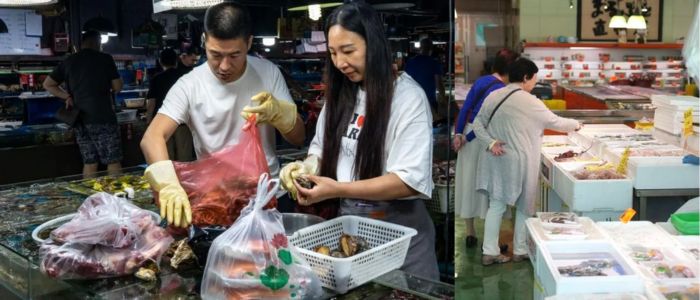Imports will resume for the majority of Japan’s 47 prefectures, but the ban will continue for 10 regions, including Tokyo and Fukushima.
Long-term monitoring of nuclear contaminant water from Fukushima by Beijing’s General Administration of Customs showed that “no abnormalities have been identified” in the contaminated water, which China and South Korea assented could be released into the Pacific, citing the resumption of imports was "conditional."
The Fukushima Disasters Treating the Injuries with Enter the Japan’s government plans to announce Tuesday that it will begin discharging treated radioactive water from the wrecked Fukushima Daichi Nuclear Power Plant into the Pacific Ocean in two years, about a decade after the disaster that led to its closing.
The ban dates back to the 2011 tsunami and consequent severe nuclear accident at Fukushima where three reactors suffered a meltdown. More than a million tonnes of treated wastewater have been building up since then.
Japan started releasing the treated water into the Pacific Ocean in 2023 — an action endorsed by the International Atomic Energy Agency (IAEA) but condemned by China. While many scientists say they believe the release is not a risk, some believe more tests are required to determine if there would be long-term effects on the environment.
China, which used to be Japan’s biggest seafood customer and accounted for almost a quarter of all seafood exports at the time of release, shut off imports when the release began.
Trade and Political Context
Tokyo has praised the partial lifting of the ban as a “positive” move and hopes to persuade China to lift the restrictions in toto. Japanese made clear that they remain committed to ensuring the safety as well as the standards of exported seafood.
Seafood companies whose imports had previously been suspended will have to apply for re-registration in China and be subject to official scrutiny.
China's tense ties with Japan Tokyo and Beijing are rivals, not least because of historical tensions and territorial disputes.
Top

China Eases Ban on Japanese Seafood Imports

China will partially lift its two-year-old ban on seafood imports from Japan, which was introduced after concerns were raised over the presence of treated wastewater from the Fukushima nuclear plant.











